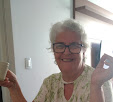THE CLICK SONG(QONGQOTHWANE)
MIRIAM MAKEBA
SONGWRITERS: MIRIAM
MAKEBA, WALTER RAIM , BOB SIMPSON , PERRY LOPEZ , THOMAS ... TO CARNEGIE HALL;
COUNTRY: JOHANNESBURG
ALBUM: MIRIAM MAKEBA
GENRE: FOLK
LABEL: RCA
VICTOR
YEAR:1960
Miriam Makeba is the self-titled debut album by Miriam Makeba. It was
released in 1960 by RCA Victor. Zenzile Miriam Makeba(4 March 1932– 9
November 2008), nicknamed Mama Africa, was a South African singer, songwriter,
actress, and civil rights
activist. Associated with musical genres including Afropop,
jazz, and world music, she was
an advocate against apartheid and
white-minority government in South Africa.
Born in Johannesburg to Swazi and Xhosa parents, Makeba
was forced to find employment as a child after the death of her father. She had
a brief and allegedly abusive first marriage at the age of 17, gave birth to
her only child in 1950, and survived breast cancer. Her vocal talent had been
recognized when she was a child, and she began singing professionally in the
1950s, with the Cuban Brothers, the Manhattan Brothers,
and an all-woman group, the Skylarks,
performing a mixture of jazz, traditional African melodies, and Western popular
music. In 1959, Makeba had a brief role in the anti-apartheid film Come Back, Africa, which
brought her international attention, and led to her performing in Venice, London, and New York City. In
London, she met the American singer Harry Belafonte,
who became a mentor and colleague. She moved to New York City, where she became
immediately popular, and recorded her first solo album in 1960. Her attempt to
return to South Africa that year for her mother's funeral was prevented by the
country's government.
Makeba's career flourished in the United
States, and she released several albums and songs, her most popular being
"Pata Pata"
(1967). Along with Belafonte she received a Grammy Award for her 1965 album An Evening
with Belafonte/Makeba. She testified against the South
African government at the United Nations and became involved in the civil rights
movement. She married Stokely Carmichael,
a leader of the Black Panther
Party, in 1968. As a result, she lost support
among white Americans. Her visa was revoked by the US government when she was
traveling abroad, forcing her and Carmichael to relocate to Guinea. She
continued to perform, mostly in African countries, including at several independence
celebrations. She began to write and perform
music more explicitly critical of apartheid; the 1977 song "Soweto Blues",
written by her former husband Hugh Masekela,
was about the Soweto uprising. After
apartheid was dismantled in 1990, Makeba returned to South Africa. She
continued recording and performing, including a 1991 album with Nina Simone and Dizzy Gillespie, and
appeared in the 1992 film Sarafina!.
She was named an FAO Goodwill
Ambassador in 1999, and campaigned for
humanitarian causes. She died of a heart attack during a 2008 concert in Italy.
Makeba was among the first African musicians
to receive worldwide recognition. She brought African music to a Western
audience, and popularized the world music and Afropop genres. She also made
popular several songs critical of apartheid,
and became a symbol of opposition to the system, particularly after her right
to return was revoked. Upon her death, former South African President Nelson Mandela said that "her music inspired a powerful sense of hope in all
of us."
Igqira lendlela
nguqo ngqothwane
Igqira lendlela (kuthwa) nguqo ngqothwane
Igqira lendlela,
Aya nguqo ngqothwane
Igqira lendlela (kuthwa) nguqo ngqothwane
Seleqabele gqi
thapha
Aya nguqongqothwane
Selequbole gqi thapha nguqongqothwane
Seleqabele gqi thapha
Aya nguqongqothwane
Selequbole gqi thapha nguqongqothwane
Igqira lendlela
Aya, nguqongqothwane
Igqira lendlela ngutwane nguqongqothwane
Igqira lendlela
Aya, nguqongqothwane
Igqira lendlela ngutwane nguqongqothwane
Sebeqabele gqi
thapha
Aya nguqongqothwane
Sebequbule gqi thapha nguqongqothwane
Sebeqabele gqi
thapha
Aya nguqongqothwane
Sebequbule gqi thapha nguqongqothwane
Igqira lendlela
nguqo ngqothwane
The road’s witchdoctor is the knocking beetle
Igqirha lendlela
kuthwa nguqo ngqothwane
The witchdoctor of the road is said to be the knocking beetle
Seleqabele gqi
thapha nguqo ngqothwane
He has passed by up the steep hill, the knocking beetle
Selequbule gqi
thapha nguqo ngqothwane
He did pass by up the steep hill, the knocking beetle
[Thanks to
GingerSpice 414 for adding a bit of clarity to the translation. I appreciate
it.]







0 comentários:
Postar um comentário